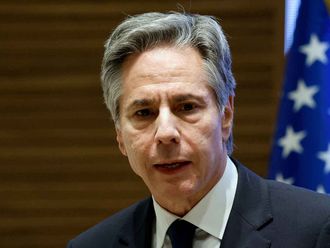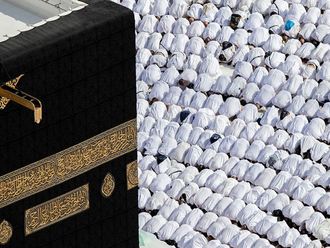Dubai: Gulf Arab states have demanded the restoration of government authority in Yemen, issuing a thinly veiled criticism of rebels with ties to Iran who have taken control of the capital, Sana’a.
Fighters from the Al Houthi movement seized Sana’a on September 21 after overrunning an army brigade affiliated to the moderate Islamist Islah party, making them effectively the power brokers in the country.
The Al Houthis have since refused to quit the capital, which they control despite an agreement they signed with President Abd Rabbo Mansour Hadi to make them a part of the government.
An emergency meeting of Gulf Cooperation Council (GCC) interior ministers expressed deep concern about what it termed threats to the Yemeni government and its institutions and the theft of the “properties and capabilities” of the Yemeni people.
GCC states would not “stand idly” in front of foreign intervention, the ministers said in a statement after the meeting late on Wednesday in the Saudi Arabian Red Sea port of Jeddah. It did not identify any foreign power.
“Yemeni and GCC security is indivisible,” the statement said, demanding the return of official buildings to state control and the return of all looted weapons, military equipment and money.
The GCC comprises Saudi Arabia, the UAE, Oman, Bahrain, Kuwait and Qatar.
Witnesses said that since September 21, armed Al Houthi tribesmen have been patrolling the streets, operating checkpoints and controlling access to several central government buildings.
The stability of Yemen is a priority for the United States and its Gulf Arab allies because of its position next to Saudi Arabia and shipping lanes which run through the Gulf of Aden.
Saudi Arabia views the Al Houthis as allies of arch-rival Iran. The Al Houthis acknowledge they are on good terms with Iran but insist they are not backed by Iran. Tehran denies interfering in Yemen.
Within a week of the takeover, Yemen freed at least three suspected Iranian Revolutionary Guard members, who had been held for months over alleged ties to the Al Houthis, and two suspected members of Lebanon’s Hezbollah group, who had been held on suspicion of planning to provide military aid to the Al Houthis.
The authorities have provided no public explanation for the releases. But the move suggested that the Al Houthis were dictating terms in the capital.












